Families have remained at the centre of politics in Jammu and Kashmir. Since 2014, this has emerged as the main critique of the institution of politics. Despite the focus, the undeniable truth persists: dynastic influence endures, with successive generations seamlessly entering the political arena, reports Raashid Andrabi.
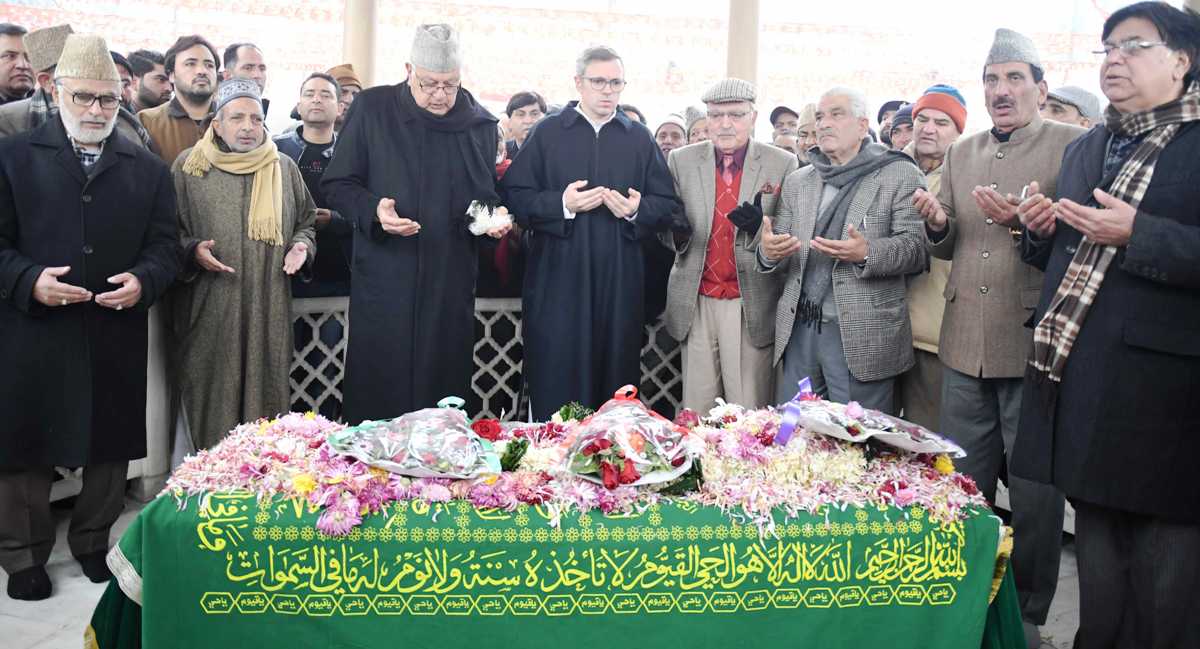
After more than five years of electoral silence in the erstwhile state, Jammu and Kashmir lit up with the elections for the Ladakh Autonomous Hill Development Council (LAHDC) Kargil. It was a major event – Rahul Gandhi came to the desert on a bike tour; Omar Abdullah organised large gatherings, and the BJP made its efforts to sell its post-Article 370 interventions. What caught the eyes was Omar Abdullah flanked by his two sons on the political stage for the first time, joining their dad, hitting the streets of Kargil.
As it set the tongues wagging in the political circles, the initial party response suggested that it was a customary family affair – sons, who were studying outside found time to accompany their over-busy dad in the arid region, also a huge tourist destination. “It was a customary visit,” One JKNC leader asserted. “A father can take his son anywhere. They belong to a political family and have grown up in a political atmosphere. Being part of that does not necessarily mean they are into politics.”
For many, however, this was yet another indicator that Omar’s law graduate sons, Zamir and Zahir, will eventually keep a date with the politics and eventually succeed their father, a tradition that Jammu and Kashmir National Conference (JKNC) founder, Sheikh Abdullah set earlier in the 1980s. Interestingly, the JKNC campaign for the LAHDC elections helped the party to sweep the elections along with the Congress. This eventually led to the installation of Dr Mohammad Jaffer Akhoon, a medical doctor, as the chairman of the Council for the next five-year term. Akhoon is the younger brother of JKNC’s most senior leader in the region, Qamar Ali Akhoon.
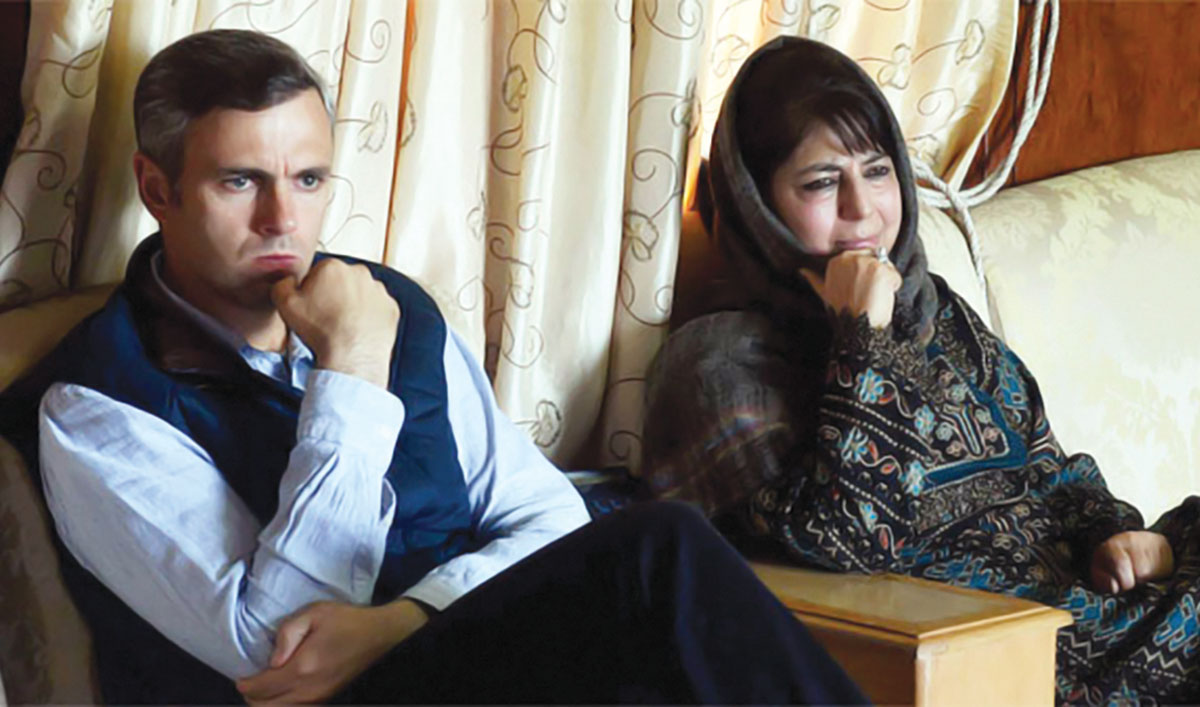
In politics, success depends on public support and votes. Even with a father’s desire to position his son or a brother, the final judgment lies with the people. A JKNC leader pointed out that Omar Abdullah initially lost his election in Ganderbal, the so-called ‘king’s constituency’ but eventually demonstrated that in politics, the people have the ultimate say.
Does dynastic politics undermine democracy, the leader said that democracy involves the people’s choice, much more than the choice that individual leaders would make. The JKNC, he noted, follows “a systematic process involving student unions, youth wings, and parent wings” while making decisions. This, he claimed, is unlike other parties.
The Critics
Kashmir’s political heavyweights have long been criticised for undermining ‘democracy’ through dynastic politics. Prime Minister Narendra Modi and his colleagues in the Bhartiya Janata Party have been the major critics of the phenomenon in Jammu and Kashmir politics. They usually accuse the two families in Srinagar (Abdullah and Mufti) and another one in Delhi (Nehru-Gandhi) of the mess in Kashmir. Its critic has been there since 2014.
“Youth politics means youth in politics, not new parties,” said a PDP youth leader, highlighting the importance of genuine youth participation. “And even today, if there is any party that has young people in it on the face and on the ground, it’s still local parties like JKNC and PDP and not BJP.”
The JKNC and PDP people see the “dynastic politics’ criticism as BJP’s public posturing. “Are not there the sons and lovers of the BJP leaders ruling the roost,” one PDP leader pointed out. “How is Amit Shah’s son the BCCI secretary, and Rajnath Singh’s son is also active in politics.” In the recent Karnataka polls, out of 212 BJP candidates, 24 tickets were given to candidates from ten political families within the BJP. This included family members like fathers, sons, and brothers.
Even in Kashmir, they allege the BJP has a soft corner towards some of the so-called dynasts. They refer to Sajad Gani Lone, the chairman of the Jammu and Kashmir Peoples Conference, one of the oldest parties of Kashmir, that he inherited from his father, slain separatist politician, Abdul Gani Lone. But Lone has an interesting take on this.
“Dynasties, marked by overt centralisation of power stemming from inherent insecurity, share a common thread,” Lone asserted in a recent interview with a business publication. “I take pride in being my father’s son, yet I am not a conventional ‘dynast.’ Since my political initiation in 2002, I have confronted both visible and concealed obstacles, persisting in my journey to surmount them. Nothing was handed to me on a platter.”
In politics, in places like Jammu and Kashmir, families of party leaders often become casualties. Their lives are under constant surveillance. How can such people stay away from politics? For them, politics is personal, said a senior Kashmiri politician, on the dynastic politics in Kashmir.
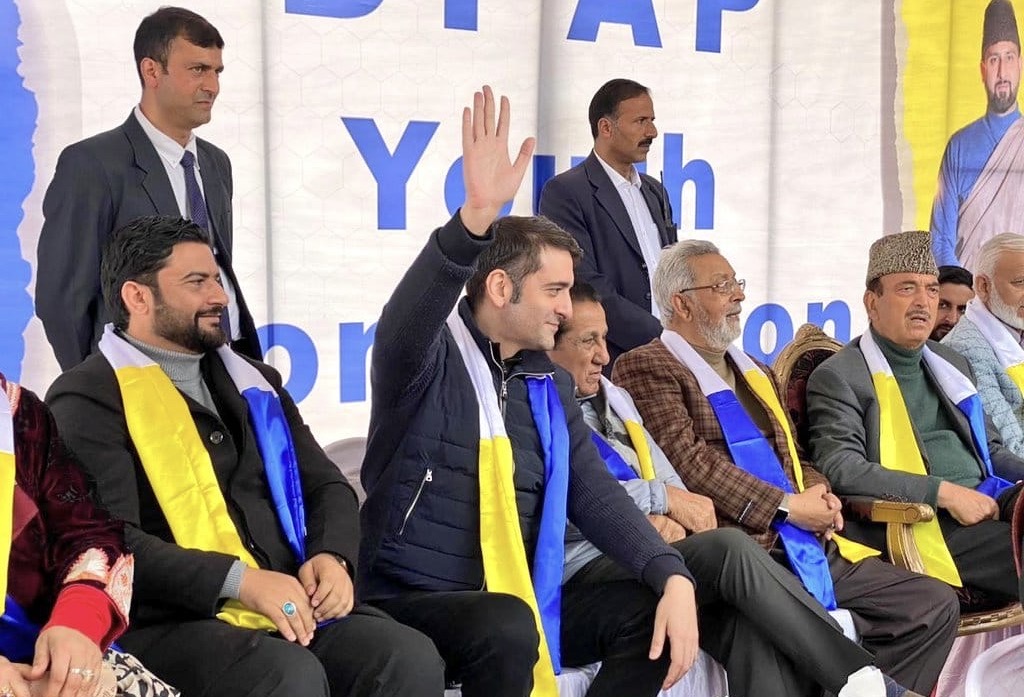
Apni Party President, Altaf Bukhari, another persistent critic of dynastic politics in Kashmir, has been accusing political family bigwigs of perpetuating the dynasty politics. A business tycoon, he distinguishes himself by staying clear of what he terms as a deceptive game played by the political dynasties.
However, actions sometimes speak louder than words. A few months after Bukhari’s vocal stance against dynastic politics, his party appointed Yawar Mir as District President of Baramulla. Yawar happens to be the son of Mohammad Dilawar Mir, an erstwhile lawmaker and a relative of Bukhari.
Families adopting politics as a profession are not restricted to Jammu and Kashmir. However, what Jammu and Kashmir offers is very exclusive. Democracy in Jammu and Kashmir has always remained a melting pot of all the privileged classes of society – the political families, the clergy, the bureaucracy and the top business. Many believe that the four categories of people have been able to stitch such a strong cushion for each other that entering the power maze without the blessing of all is impossible.
Between 1996 and 2018, a political observer, who wishes to stay anonymous said that all the senior bureaucrats joined the politics in Jammu and Kashmir. “This changed the complexion of the politics as it became increasingly bureaucracy in nature,” he said. “We reached a stage later than we could not distinguish if the politics is bureaucratised or the bureaucracy was politicised.”
In Jammu and Kashmir, quite a few top businesses are out of politics. So is the case of the clergy. “Politics is supposed to regulate business but what happens when businesses decide the politics of a place,” the analyst said.
With time these classes get into relationships and eventually create a super-class. There are families in Kashmir who have as many stakes in the faith as they have in politics, business or bureaucracy. “These are live hot wires, nobody can touch them because they have everything.”
Generations of Leaders
In the larger scope of Indian politics, dynastic rule is a well-documented trend. The Nehru-Gandhi family’s influence stretches to Kashmir as well, where political dynasties have been a constant since the early 1900s.
The trend in Kashmir was set by Sheikh Mohammad Abdullah himself when on his death his son inherited the throne and the party with the largest support base in the state. Political scientists believe that holding on to and consolidating power within families “gnaws at the very roots” of democracy.
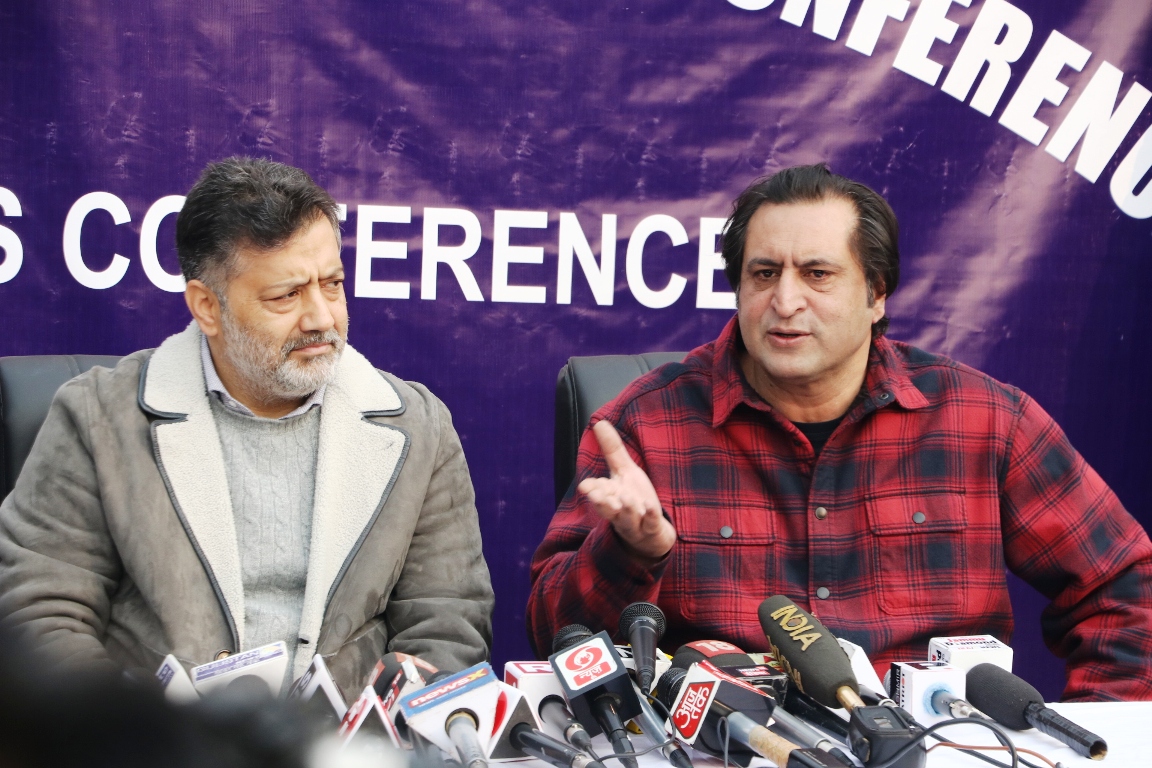
The dynastic legacy, after Farooq passed on to his son, Omar Abdullah, who served as Chief Minister from 2009 to 2014. Barring Tariq Abdullah, Sheikh’s both sons – Dr Farooq and Dr Mustafa Kamal and their cousin Sheikh Nazir, were in politics. The party eventually will be inherited by Omar, the only male in the third generation of Abdullahs’.
Given Omar Abdullah’s sustained success in politics, it was only a matter of time before his sons were ready to step into his shoes. While Omar’s sons have not formally entered politics, they will follow the suit, sooner than later. “Is it a dynastic rule if people choose Omar as chief minister? Dr Farooq and Sheikh Abdullah got public support for the top position,” a JKNC leader said. “It is about what the people decide, making democracy stronger.”
“It is only the dynastic politics that has survived in Jammu and Kashmir,” said Zafar Choudhury, a senior political analyst from Jammu, underlining the unique political dynamics that have shaped the region.
Choudhury delves into the historical context, pointing out an autocratic model that has sustained itself through a select few personalities for over a century. “The autocratic model is sustained only by a few personalities,” he notes, shedding light on the enduring connection between the current political structure and influential individuals in the pre-1947 era.
While acknowledging a brief transitionary period from the early 1930s to the late 1940s, during which a democratic movement gained momentum, Choudhury argues that dynastic politics continued to dominate. “In total, there were 15-20 prominent personalities who sustained this movement,” he emphasises, highlighting the enduring influence of key figures in shaping the political narrative.
Dynastic politics has been a prominent feature of the political landscape in Kashmir. The region’s political history is complex and volatile, shaped by external forces and internal struggles. Kashmir has seen the rise and fall of numerous empires and dynasties, including Hindu dynasties, Muslim rule, Sikh kingdom, and Dogra kingdom.
The history of dynastic politics in Kashmir can be traced back to the anti-colonial movements in the region. The phenomenon of leadership passing on to the leaders’ wards is not unique to Kashmir, but the way people are taken for granted in Kashmir makes it different and ugly.
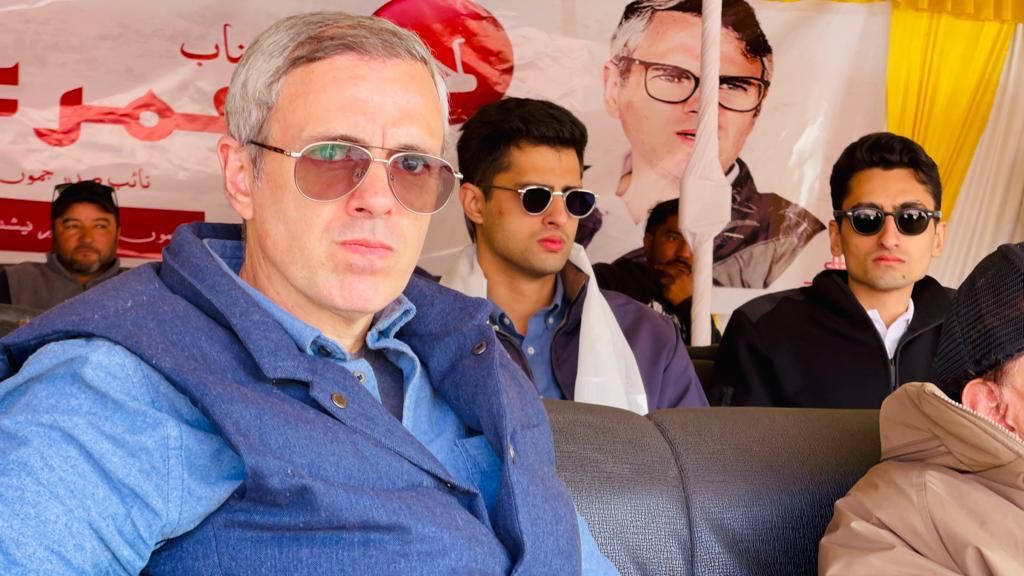
Critics argue that dynastic politics undermines the democratic fabric of Jammu and Kashmir, while proponents contend that it is an intrinsic part of the socio-political ethos, shaped by historical circumstances and the region’s unique dynamics.
The dynasties, according to Choudhury, played a pivotal role in sustaining the political scene of Kashmir. “Outside the dynasty, young people getting some sort of role in politics is only possible if there is any kind of political movement, which is not that common in Kashmir. In Kashmir, the political environment is different,” he explains.
Leadership passing to leaders’ kids is not just in Kashmir; it happens a lot in the subcontinent. Some political scientists trace the roots of the dynastic culture to the anti-colonial movements in India and princely states.
Iltija’s Political Foray
After Shiekh’s NC, it was Mufti Mohammad Syed’s PDP that followed in his footsteps of dynastic politics. Mufti, the architect of the People’s Democratic Party (PDP) in the late 1990s, set the stage for dynastic succession. His daughter, Mehbooba Mufti, after Syed assumed the role of Chief Minister, preserved the family’s sway in both the party and regional politics.
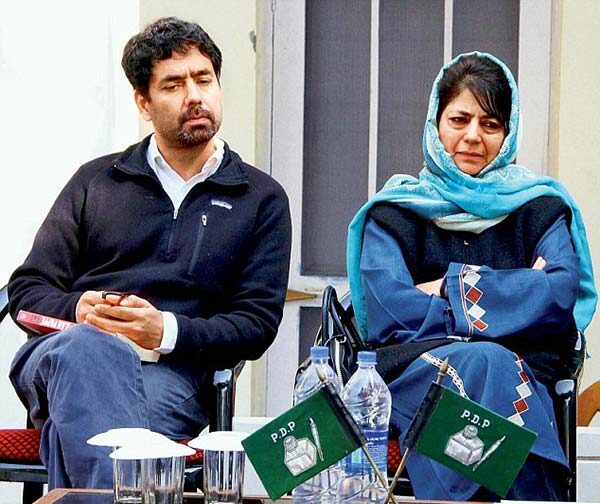 Many senior politicians and political analysts said that Mehbooba’s entry into politics was not merely a result of her father’s influence. In the initial two decades of her career, Mehbooba played a pivotal role in sustaining the PDP. A seasoned politician from Kashmir said, “In the latter part of her father’s political journey, he lacked significant influence. Mehbooba truly carved out her own identity and reputation.”
Many senior politicians and political analysts said that Mehbooba’s entry into politics was not merely a result of her father’s influence. In the initial two decades of her career, Mehbooba played a pivotal role in sustaining the PDP. A seasoned politician from Kashmir said, “In the latter part of her father’s political journey, he lacked significant influence. Mehbooba truly carved out her own identity and reputation.”
As Mehbooba is now moving towards her older self, it was time for someone to replace her, and her daughter Iltija Mufti was the best and closest option for her. Iltija is a graduate in political science from Delhi University and a post-graduate in international relations from the University of Warwick, England.
PDP President’s daughter has been in politics indirectly since the arrest of her mother following the abrogation of Article 370 on August 5, 2019. So many in the PDP believe she was around her mother much earlier when she was the Chief Minister. Until Mehbooba was in detention until October 2020, Iltija took over the Twitter account of her mother and operated it.
“Iltija was always expected to plunge into politics sometime after the release of her mother; however, she was reluctant to join politics until last year,” said a senior PDP leader. “Since then, however, her mother had been persuading her to join active politics.”
In August 2023, Iltija was announced as the media advisor to her mother, Mehbooba Mufti, who serves as the president of the People’s Democratic Party (PDP). Though the individuals closer to the mother-daughter said the decision was made by the party’s high command, there are many from the senior who said “It was a sweet surprise”. Though she is yet to be in politics completely, the entry is made.
Off late, what is visible is that Iltija wants to create “her own space” and have some “face value in politics” before plunging into active politics.
Another Son Rise
Ghulam Nabi Azad, the former Chief Minister of the erstwhile state of Jammu and Kashmir (2005-2008), marked a significant milestone last year by founding the Democratic Progressive Azad Party (DPAP). Adding another layer to this political narrative of dynasts, his son, Saddam Nabi Azad, stepped into the realm of active politics.
Saddam, a 41-year-old entrepreneur educated in England, made his public debut in Kashmir during a Youth Interaction Programme in August 2023. Despite sharing the stage with senior party leaders, he refrained from addressing the convention, maintaining an air of mystery around his political foray.
Saddam had been quietly working behind the scenes to enhance the efficiency of his father’s party.
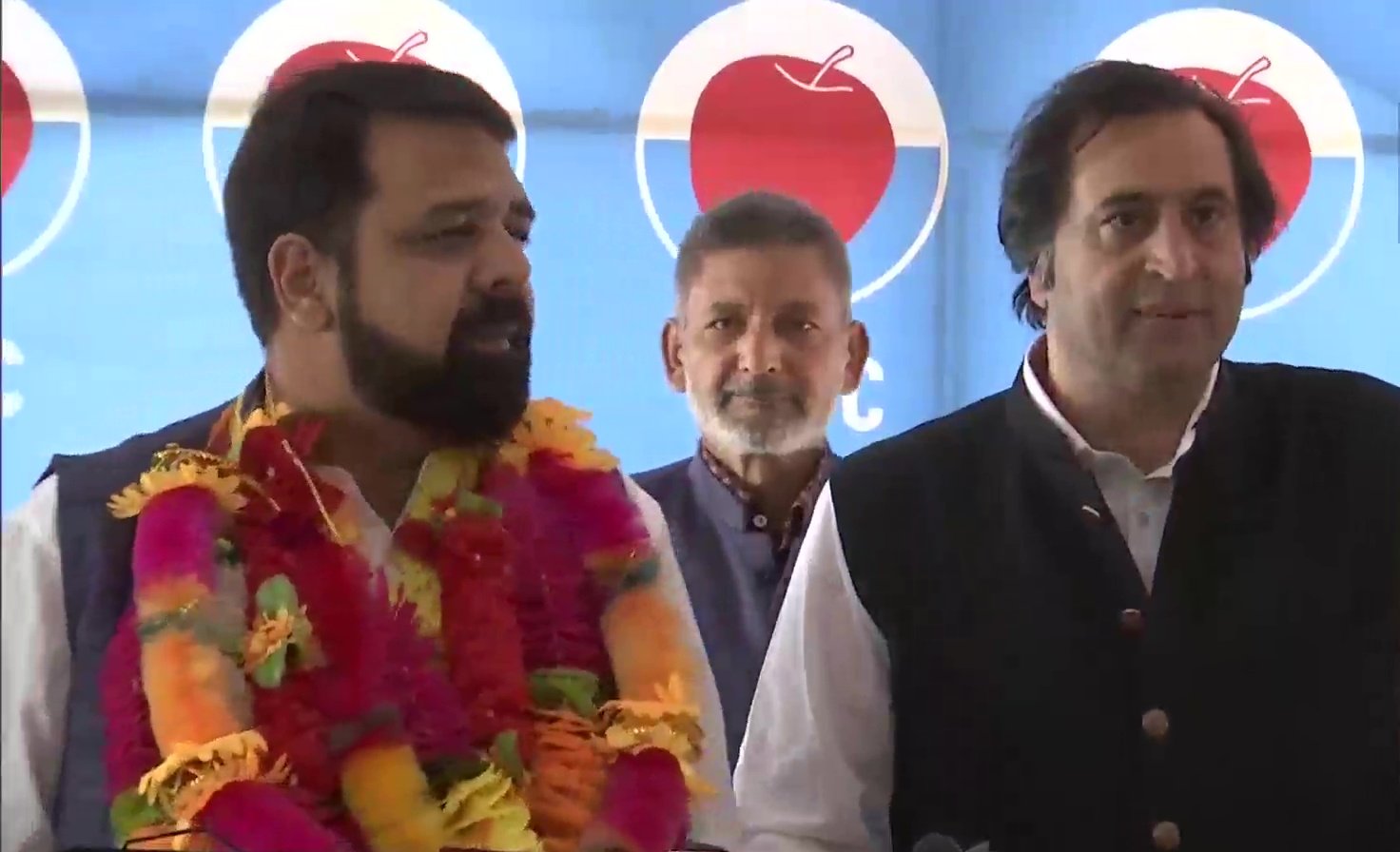
Azad, on his son’s joining, said that he encouraged his son to traverse the length and breadth of the valley incognito, devoid of any security, with the aim of understanding the genuine concerns and aspirations of the people.
“BJP, before asserting that dynasties are undermining politics, should look inward. Where is Rajnath’s son? Who is heading BCCI? Several names can link BJP to dynastic politics,” said Salman Nizami, a senior in Azad’s Party. “Saddam (Azad’s son) joined politics independently. And he will have to make a name for himself. It doesn’t matter whose son you are; after all, you have to win the confidence of the general public.”
Out of Spotlight
While as the spotlight often falls on a few prominent figures, other political parties and leaders in Kashmir have also been entangled in the web of ‘Pariwaarvaad’ (dynastic politics).
After the fall of the BJP-PDP coalition in Jammu and Kashmir, MLAs led by Imran Raza Ansari, a PDP leader, raised a banner of revolt against the party leadership with a common complaint that the Peoples Democratic Party has turned into a “Family Democratic Party.”
Imran is the son of Molvi Iftikhar Hussain Ansari, a veteran Congress leader who has been a member of the Jammu and Kashmir‘s Legislative Assembly four times. He passed away in 2014. In PDP, the rise of Ansari’s was impressive. While Imran represented the Pattan segment, his uncle Abid Hussain Ansari represented Zadibal. Imran also inherited his father’s massive religious base.
Now, with Peoples Conference, the party Molvi Sr founded by Abdul Gani Lone, Ansari, despite his vocal criticism of dynastic politics in Kashmir, finds himself inadvertently part of the same chain. The interplay of family ties and political aspirations underscores the complexities of disentangling from dynastic associations. In his case, faith is an additional extension apart from family and politics.
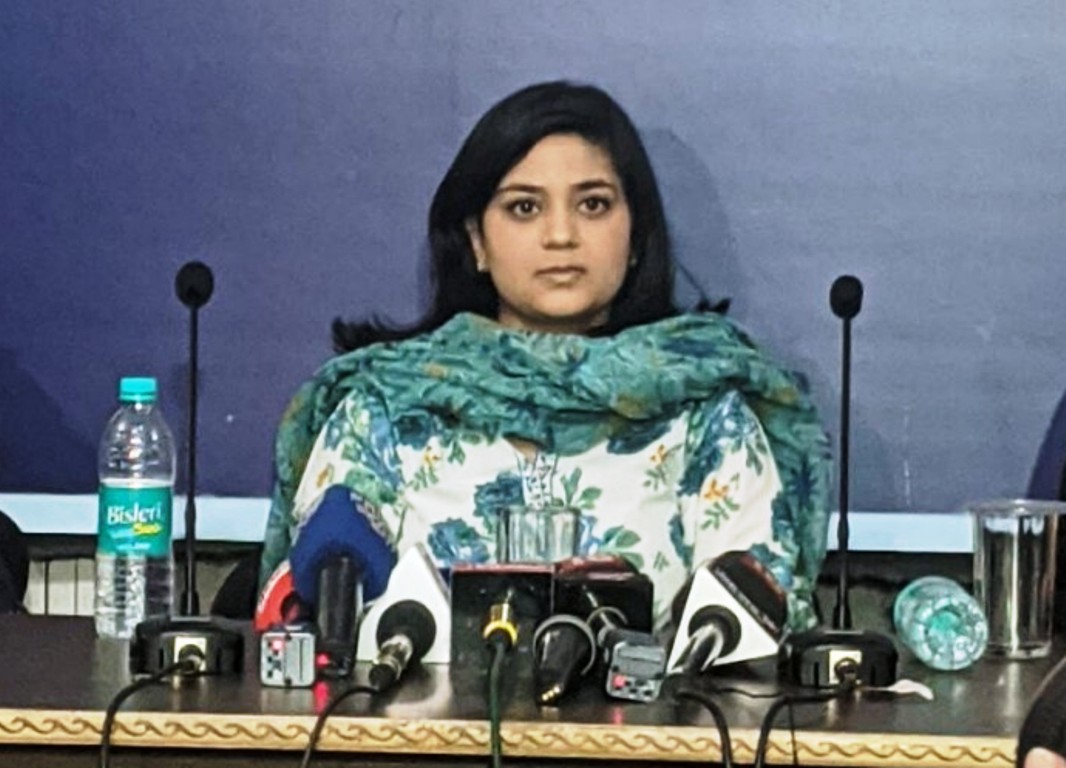
Ansari, however, is not alone. Hilal Rather, the son of veteran National Conference (NC) leader Abdul Rahim Rather, Jammu and Kashmir’s six-time finance minister, added another chapter to the dynastic narrative by joining the People’s Conference in October 2021. “I respect my father and he has been magnanimous in giving me space to make my own decisions. I have taken this decision on my own,” Hilal said at the joining conference.
Rather said he chose the People’s Conference as he wanted to work for the youth of Jammu and Kashmir who have immensely suffered due to the ongoing conflict. Asked why he did not join the National Conference, he said he did not want to do “negative politics”.
Rafi Ahmed Mir, another veteran politician from Jammu and Kashmir and the General Secretary of PDP also belongs to a premier political family. Mir is the son of former MLC, MLA late Ghulam Ahmad Mir fondly known as Mir-e-Sallar, who worked with Sheikh Mohammad Abdullah. His forefathers remained close to Maharaja Hari Singh and later on participated in active politics of Kashmir.
Salman, Ali Mohammed Sagar’s son, was Srinagar’s former mayor. Sakina Itoo is Wali Mohammad Itoo’s daughter. Ajat Shatru, the son of Karan Singh, belongs to the former Maharajas’ lineage. Many leaders like Mehboob Beigh, Sajad Kitchloo, Tanveer Sadiq, Irfan Shah, Aga Rohullah, Mian Altaf, and Nasir Sogami have a political family history.
Regardless of what critics assert, the fact is that generations are getting baptised into politics simply because their elders have created a base. In the Kashmir context, these fiefs will not change as long as the people see the parties from the family prism.
The post Jammu and Kashmir: The Dynasts appeared first on Kashmir Life.
from Kashmir Life https://ift.tt/AwFkp8a
via IFTTThttps://ift.tt/XusfkQR
No comments:
Post a Comment